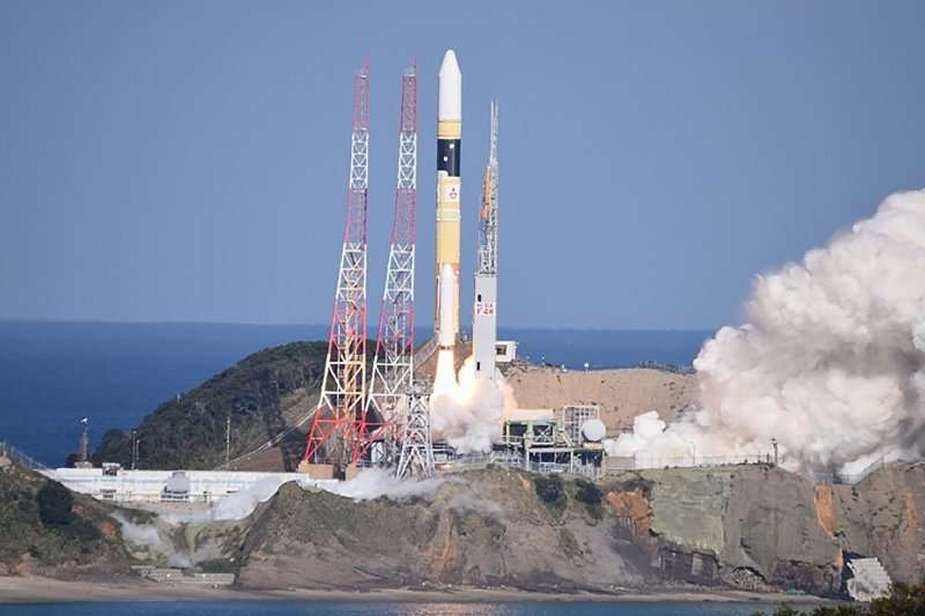Breaking news
Japan launches satellite to monitor North Korean military activities.
Japan has successfully launched a government intelligence-gathering satellite to monitor North Korean military sites and enhance its natural disaster response mechanisms. The launch occurred on January 12, 2024, from the Tanegashima Space Center in Kagoshima, southern Japan.
Follow Air Recognition on Google News at this link
 Japan has successfully launched a government intelligence-gathering satellite to monitor North Korean military activities (Picture source: Mitsubishi Heavy Industries Launch Services)
Japan has successfully launched a government intelligence-gathering satellite to monitor North Korean military activities (Picture source: Mitsubishi Heavy Industries Launch Services)
Mitsubishi Heavy Industries Ltd. was responsible for the launch of the H2A rocket, which placed the advanced optical satellite into orbit. This initiative is crucial to Japan's expanding reconnaissance operations, reflecting Tokyo's strategic focus on rapidly enhancing its military capabilities.
Japan's intelligence-gathering satellite program began in 1988, following the trajectory of a North Korean missile over Japanese territory. Japan's ambitious plan includes establishing a network of 10 satellites to provide early warning and tracking potential missile launches.
In line with the national security strategy established in 2022, Prime Minister Fumio Kishida's administration is advancing its military posture. This includes plans to deploy long-range U.S.-manufactured Tomahawk and other cruise missiles, a move signifying a shift from Japan's traditional self-defense-only stance. This strategic reorientation is a response to rapid advancements in weaponry by neighboring countries, notably China and North Korea.
The recent launch is of particular interest as it precedes the anticipated launch of the new flagship H3 rocket. This rocket, developed collaboratively between Mitsubishi Heavy and the Japan Aerospace Exploration Agency, is the proposed successor to the H2A. Its first test flight encountered a setback last year.
The H2A rocket, a liquid-fuel launcher operated by Mitsubishi Heavy and supported by two solid-fuel sub-rockets, boasts an impressive track record with 41 consecutive successful launches since an incident in 2003, achieving a 98% success rate. This latest mission underscores Japan's commitment to strengthening its security infrastructure and disaster preparedness in an increasingly volatile regional environment.
Additionally, this launch occurs amid rising tensions between North and South Korea. Recently, several series of artillery exercises have been conducted near the DMZ, leading to a deterioration in relations between South and North Korea. This successful launch by Japan could be perceived negatively by North Korea and mark a further escalation in an already tense region. The situation continues to develop and is closely monitored.


























